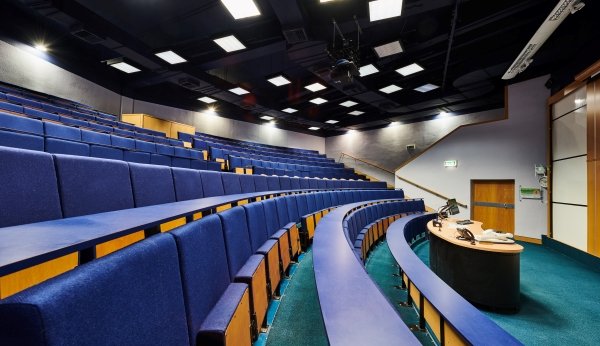
Teaching activities
Teaching portfolio: Active learning and video production
I have enjoyed delivering a wide range of teaching activities at the University of Stirling in the UK since 2015. Since my appointment at the University of Stirling in 2015, I have been involved in teaching a diverse selection of modules, spanning Biodiversity, Field Course, Molecular Biology, Synthetic Biology, Chemistry, Microbiology, and Honours Dissertation Projects, which are core modules across different BSc. Degree Programmes.
Currently, I am teaching three modules at various level of undergraduate studies: Lab Skills (Chemistry, SCIU3LS, ~200 students, 2nd year), Microbiology (BIOU5MB, ~ 80 students, 3rd year) and Molecular techniques (BIOU9TM, ~30 students, 4th year), delivering seminars, workshops, chemistry tutorials, lectures, and practical sessions.
I have also taken pleasure in producing many custom-made videos designed to enhance the preparation of on-campus seminars and to promote active learning, moving away from the unique traditional passive learning approach that involves extended periods in lecture theaters. This innovative teaching style has allowed me to develop new skills, including video editing, and has required a significant degree of creativity and pedagogy to engage students in subjects that are often perceived as complex or less popular, such as thermodynamics and chemistry.
Lab Skills - Chemistry
This module aims to provide students with the elementary laboratory skills that are required to pursue subsequent advanced modules and the theory behind many of the techniques and tools that the natural sciences use. In this module students gain:
Practical skills: follow written procedures that involve the management and pursuit of a diverse range of common laboratory tasks so as to achieve a successful outcome
Laboratory safety skills: assessment of hazards and minimising risks when working in a laboratory.
Arithmetic skills: data collection and its subsequent analysis.
Written communication skills: directed data presentation.
Information retrieval skills: appreciation and use of the resources available in the University library. You will have several practical sessions in a laboratory.
We have designed this Module to give all students across seven BSc degree programmes with the basic knowledge in Chemistry and a first overview of all the exciting areas of Science that require Chemistry, especially in the Laboratory.
Molecular Techniques
This module aims to provide students with the core methodologies and experimental techniques that underpin molecular biology including the isolation and purification of DNA, the PCR, gene cloning using plasmid vectors, bacterial transformation and the identification of recombinant organisms, protein expression, quantitation and protein purification. In this module, students explore the methodologies of other common molecular techniques (Real Time PCR, Southern/Northern/Western Blots, RFLP) as well as new molecular tools (Omics, single cell Omics, Lab-on-a chip, Synthetic Biology).
In this module that I coordinate, students learn how to design a suitable experiment for a specific molecular-based research project. This module strengthens their knowledge in molecular biology and help students expanding their skills in problem solving, critical evaluations. They also learn how to troubleshoot unsuccessful experiments, and how to optimise molecular-based methods. The module prepares students to molecular-based Dissertation Projects. In addition to getting to know diverse molecular techniques, students strengthen skills associated with independent learning and critical and creative thinking.
Microbiology
The aim of this SCQF level 9 Module is to provide student with a comprehensive background in microbiology by covering fundamental aspects of the diversity, structure, growth, physiology, and molecular biology of microorganisms and their roles in the wider ecology of aquatic and terrestrial ecosystems.
The module provide an insight into the variety of ways in which microbes are able to adapt to their environment by examining (i) bacterial growth, metabolism, transcriptional control and stress responses, and (ii) the importance of microbes in disease, symbioses and their contributions to a range of global ecosystem services.
I teach in the first part of this module, covering bacterial and archaeal diversity, as well as the various steps involved in bacterial characterisation. During those sessions, I have the opportunity to share my passion for environmental microbiology and discuss employment opportunities in the field, with the aim of inspiring some of the students and encouraging them to think differently about microbiology. Microbiology is not limited to clinical research and pathogens; it also extends to numerous fields such as food industry, biotechnology, pharmaceutics, and environmental sciences.







